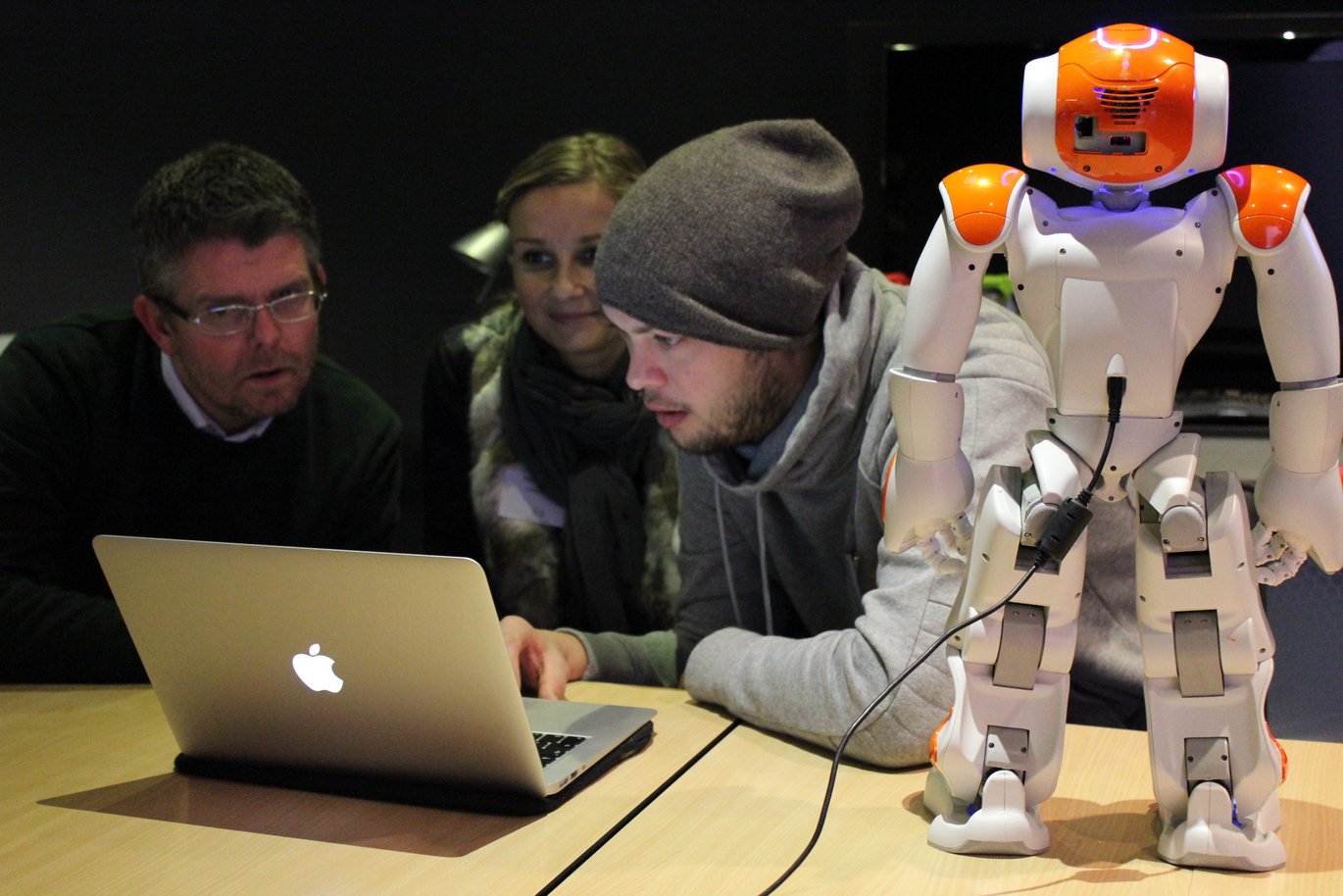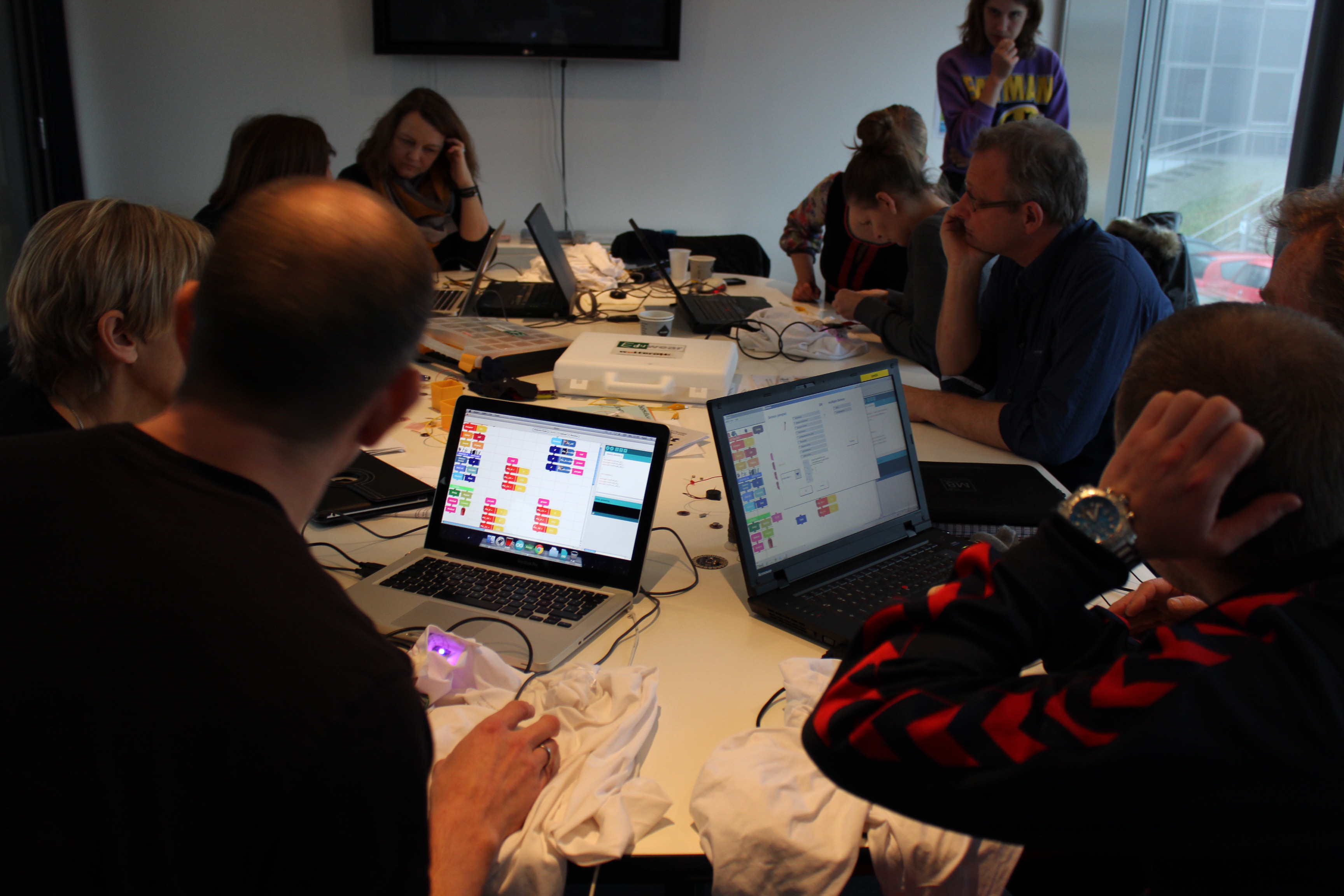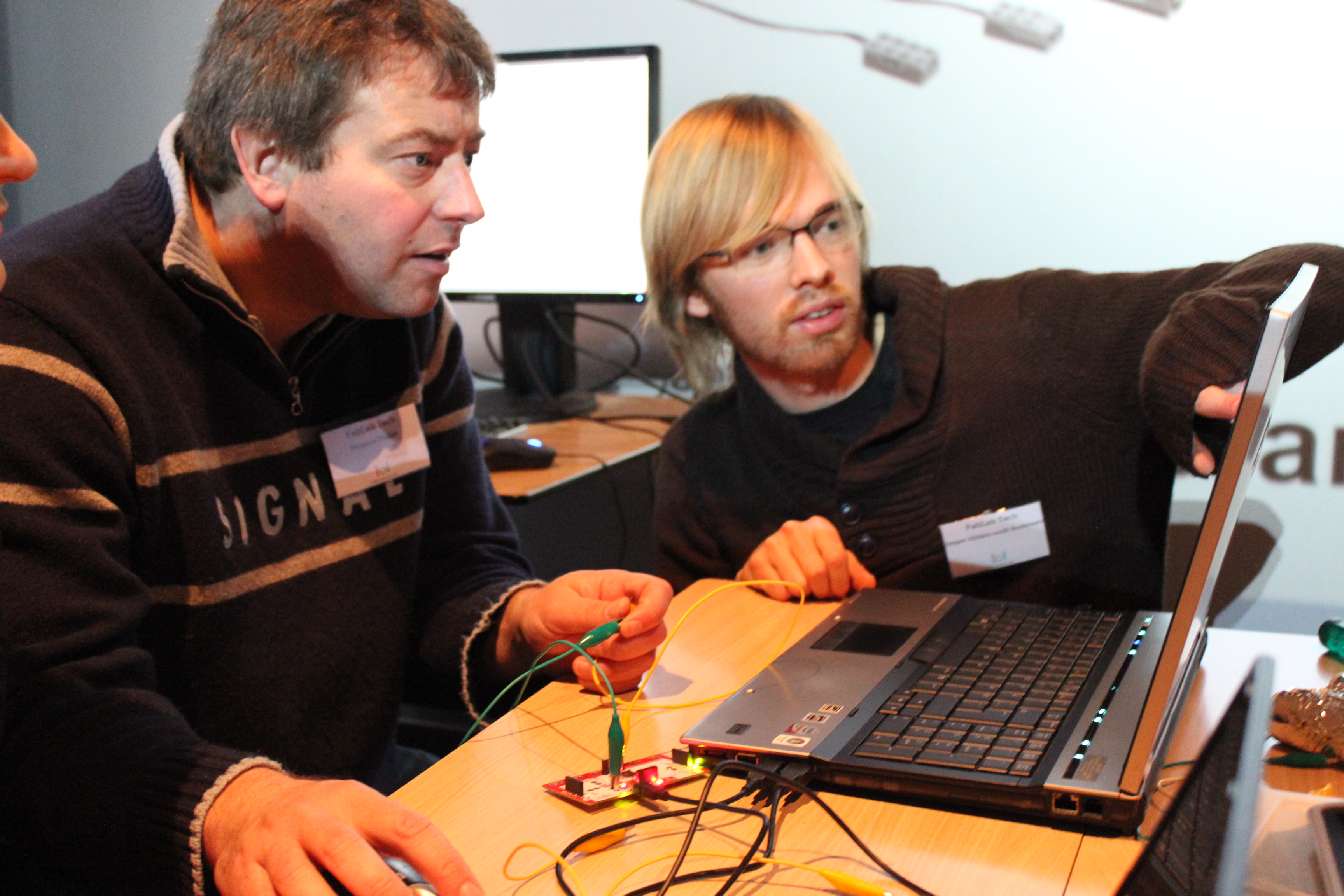FabLab@School.dk workshop challenges schoolteachers to program LilyPads and robots
Everybody loves a challenge. To launch the new research program, Fablab@School.dk, schoolteachers and managers were invited to participate in a three-day workshop that included hands-on-experiments with new technologies, and discussions of how to build future FabLabs



In November 2013, the FabLab@School.dk research program was granted DKK 3 million by The Danish Industry Foundation, and thus, enabling the three-year-long program to realize its vision of turning schoolchildren into future digital developers. Taking its point of departure in Stanford University’s established research initiative, “FabLab@School”, the Danish program will develop the concept in the Scandinavian tradition of design and innovation processes. Project member Rachel Charlotte Smith points out that preconditions for a well-established research project and future Danish FabLabs in schools include a deep understanding of design competence and digital literacies as well as the technologies and educational contexts at hand. By taking this design approach, the research program aims to collaborate with schoolteachers and children in the establishment of future FabLab@School.dk initiatives.
Only a couple of weeks after establishing the FabLab@School.dk research program, the first of the three workshops for important stakeholders and future managers of the fablabs was held by Aarhus University at Spinderihallerne in Vejle. The first day dealt with how to establish a fablab in the three municipalities involved, and the second day offered a hands-on-workshop hosted by CAVI and Digital Design Lab at Aarhus University. The workshop presented the teachers with new technologies, such as LilyPads, robots, and Makey Makey, and challenged them to gain insights of the technologies by experimenting with them by themselves. Based on their experiences, and inspirational lectures from local and international academics, the workshop participants worked to develop frameworks for integrating digital fabrication technologies into teaching.
The FabLab@School.dk workshops were the first step toward a better understanding of how to implement technologies in primary and lower secondary schools. The workshop participants were challenged, and gained some insight into new technologies. But as Rachel Charlotte Smith notes that the most valuable aspect of the workshops was to stimulate the participants’ minds, inspiring the teachers to consider and rethink the possibilities for integrating digital fabrication technologies and transformative ways of learning into their own schools. The next step for the participating municipalities is the development of a tentative vision for their individual FabLab@School initiatives, which will be part of the research program at Aarhus University.
The project is conducted by Centre for Participatory IT (PIT) and led by Professor Ole Sejer Iversen. The workshop participants were school administrators and teachers from Silkeborg, Aarhus and Vejle municipality, coordinated from Spinderihallerne in Vejle by Katrine Holm Kanstrup.
